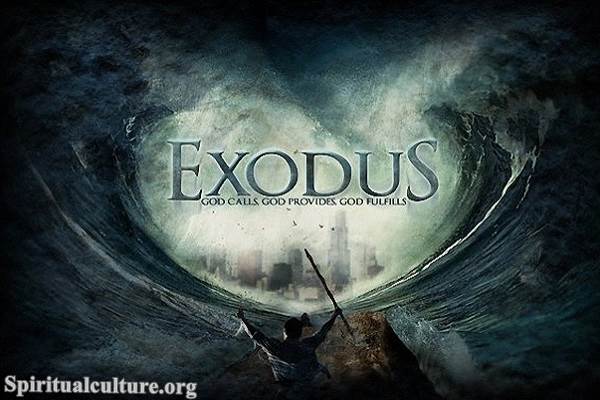From the time of the Reformation until today, one rallying cry has echoed in the hearts of millions of believers: Sola Scriptura — “Scripture alone.” This powerful phrase doesn’t merely express a theological opinion. It captures a deep conviction, a spiritual revolution, and a vision of life rooted in divine revelation rather than human tradition.
As Spiritual Culture, we invite you to explore not just the historical meaning of this doctrine, but the living soul behind it. Why did reformers risk everything for the authority of the Bible? Why does this belief still stir minds, ignite movements, and divide communities? And how can we engage with Scripture today — not merely as a book of ancient words, but as the voice of God calling us home?
This article will journey through the origin of Sola Scriptura, its Biblical foundation, how it shaped Protestant identity, and what it means for believers in our time. Along the way, we’ll consider the soul-level questions that arise when we say: “God’s Word alone is our highest authority.”
The Reformation’s Cry: Why “Scripture Alone” Was Revolutionary
The World Before Sola Scriptura
Before the Protestant Reformation, the Christian world was largely shaped by the traditions and structures of the Roman Catholic Church. While the Bible was honored, its interpretation and authority were often seen through the lens of church councils, papal decrees, and centuries of theological development. In many cases, Scripture was not available in the common language of the people, and access to it was mediated by clergy.
This created a religious culture where many sincere believers lived without personal engagement with the Word of God. Faith was shaped by rituals and tradition — often beautiful, but sometimes disconnected from the source of divine truth.
A Fire Begins: Luther’s Stand on the Word
In 1521, when Martin Luther stood before the Emperor at the Diet of Worms, he declared:
“Unless I am convinced by the testimony of the Scriptures or by clear reason… I am bound by the Scriptures I have quoted and my conscience is captive to the Word of God.”
With that, a shift occurred. Luther and other reformers insisted that Scripture — not popes or councils — was the final authority. This didn’t mean a rejection of tradition altogether, but a re-centering of the church’s foundation on the inspired Word.
Scripture Becomes Accessible
One of the greatest fruits of Sola Scriptura was the translation of the Bible into the languages of ordinary people. Luther’s German Bible, Tyndale’s English New Testament, and later the King James Version opened the door for the Word to be read, studied, and lived by all — not just the elite.
Theological Foundations: What Sola Scriptura Means
Scripture Is Inspired, Infallible, and Sufficient
At the heart of Sola Scriptura is the belief that the Bible is God-breathed — inspired by the Holy Spirit, trustworthy in all it teaches, and sufficient for knowing God and His will.
Paul writes to Timothy:
“All Scripture is breathed out by God and profitable for teaching, for reproof, for correction, and for training in righteousness…” (2 Timothy 3:16–17, ESV)
The reformers clung to this truth: that Scripture contains all that is necessary for salvation and godly living. They did not deny the value of tradition, reason, or community, but they believed these must always be tested by the higher authority of the Word.
Scripture Interprets Scripture
Another key aspect is the principle that unclear passages of Scripture should be interpreted in light of clearer ones — allowing the Bible to be its own interpreter. This guards against cherry-picking verses or building doctrines on obscure texts without context.
The Role of the Holy Spirit
Crucial to Sola Scriptura is the belief that the same Spirit who inspired the Word also illuminates it for believers. This makes personal reading not only possible but spiritually transformative. It’s not just literacy that matters, but the living presence of God with the reader.
Tensions and Misunderstandings: What Sola Scriptura Is Not
Not “Solo” Scriptura
Many critics of Protestantism have misunderstood Sola Scriptura as meaning that individual believers are meant to interpret Scripture entirely in isolation, without regard to church history, tradition, or theological wisdom. This is not what the reformers taught.
The right understanding is this: while Scripture alone is the final authority, the insights of the faithful across history help us interpret and apply it wisely. The early church fathers, creeds, and confessions are not rivals to Scripture — but companions that serve its message.
Not the Rejection of All Authority
Sola Scriptura affirms the Bible as the highest authority — not the only source of insight. Church leaders, teachers, and spiritual mentors still have roles, but they serve under the Word, not above it.
Scripture Alone in the Life of the Church
Preaching and Teaching the Word
In churches committed to Sola Scriptura, the central act of worship often includes the reading and exposition of Scripture. Sermons are not just moral lessons or motivational talks — they are meant to open the Word and apply it faithfully to the lives of believers.
Scripture Shapes Doctrine
Whether it’s the doctrine of salvation, the nature of God, or the understanding of baptism, Protestant theology is built from the Bible outward — not from philosophy inward. This ensures that belief is always tethered to divine revelation.
A People of the Book
Christians who live by Sola Scriptura become “people of the Book.” They memorize it, meditate on it, study it in community, and let it shape their worldview. This is not just intellectual — it is devotional. The Bible becomes the heartbeat of daily life.
“Your word is a lamp to my feet and a light to my path.” (Psalm 119:105)
Scripture and the Soul: Why It Still Matters
In a World of Voices, One True Word
In today’s culture, where opinions abound and truth feels slippery, Sola Scriptura grounds us. It offers a stable foundation when everything else shifts. It reminds us that God has spoken — and still speaks — through His Word.
Meeting God in the Pages
The Bible is not just a theological textbook. It’s a sacred space where the living God meets us. When we read with humility and faith, we don’t just learn about God — we encounter Him. Scripture comforts the broken, convicts the proud, and leads the searching.
A Personal Relationship with Truth
Sola Scriptura invites every person — not just priests or scholars — to hear from God. This is radically empowering. The Spirit speaks through the Word to shape hearts, renew minds, and guide lives. Scripture becomes not just true, but personal.
Reflect and Reimagine: What This Means for You
In an age where tradition may feel stale and institutions seem distant, Sola Scriptura calls us to a radical intimacy with God through His Word. It doesn’t dismiss the church or community, but it places the foundation where it belongs — in God’s own voice.
So what would it mean for you to return to the Scriptures as your first authority? To not just read the Bible, but be read by it? To wrestle with it, be comforted by it, be shaped by it — daily?
As Spiritual Culture, we invite you to open the pages again. Not as a duty. But as a doorway. Let the Word guide your life, reveal your heart, and point you again to the One who speaks through every line.
“The grass withers, the flower fades, but the word of our God will stand forever.” (Isaiah 40:8)
Let us be a people shaped by the enduring Word — not just in theology, but in love, justice, and everyday faithfulness. Scripture alone, yet never alone — for the Spirit speaks still.



